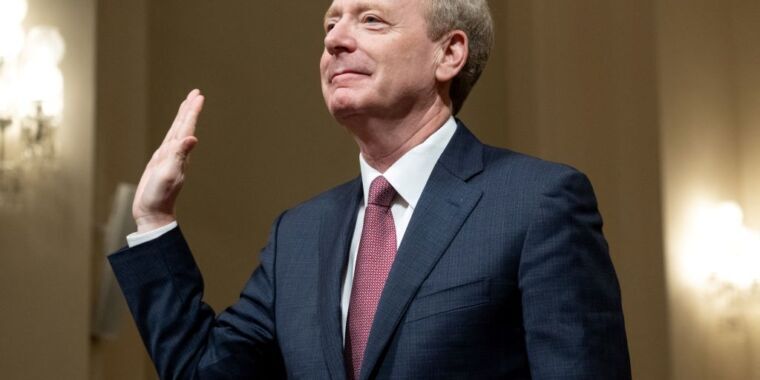- cross-posted to:
- technology@lemmy.world
- cross-posted to:
- technology@lemmy.world
Microsoft is pivoting its company culture to make security a top priority, President Brad Smith testified to Congress on Thursday, promising that security will be “more important even than the company’s work on artificial intelligence.”
Satya Nadella, Microsoft’s CEO, “has taken on the responsibility personally to serve as the senior executive with overall accountability for Microsoft’s security,” Smith told Congress.
His testimony comes after Microsoft admitted that it could have taken steps to prevent two aggressive nation-state cyberattacks from China and Russia.
According to Microsoft whistleblower Andrew Harris, Microsoft spent years ignoring a vulnerability while he proposed fixes to the “security nightmare.” Instead, Microsoft feared it might lose its government contract by warning about the bug and allegedly downplayed the problem, choosing profits over security, ProPublica reported.
This apparent negligence led to one of the largest cyberattacks in US history, and officials’ sensitive data was compromised due to Microsoft’s security failures. The China-linked hackers stole 60,000 US State Department emails, Reuters reported. And several federal agencies were hit, giving attackers access to sensitive government information, including data from the National Nuclear Security Administration and the National Institutes of Health, ProPublica reported. Even Microsoft itself was breached, with a Russian group accessing senior staff emails this year, including their “correspondence with government officials,” Reuters reported.



Sure its secure, but is it verifiably secure?
I mean you can provide audit findings and results and it’s a pretty big part of vendor management and due diligence but at some point you have to accept risk in using open source software that can be susceptible to supply chain hacks, might be poorly maintained, etc or accept the risk of taking the closed source company’s documentation at face value (and that can also be poorly maintained and susceptible to supply chain attacks)
There’s got to be some level of risk tolerance to do business and open source doesn’t actually reduce risk. But it can at least reduce enshittification
It’s pretty hilarious when people act like being open source means it’s “more secure”. It can be, but it’s absolutely not guaranteed. The xz debacle comes to mind.
There are tons of bugs in open source software. Linux has had its fair share.